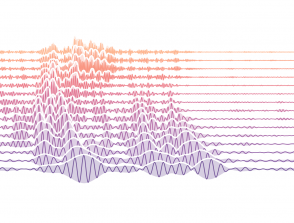Time-lapse rock deformation monitoring using waveform inversion
Début : 01 octobre 2018
Fin : 28 avril 2022
Encadrants :
Nobuaki Fuji, Fabian Bonilla
Équipes liées :
Sismologie
Statut : Soutenue
Microscopic and macroscopic monitoring of crack evolution is a key to helping us understand the stress statement and
seismic features of the failures. Microscopically, the measurement of rock properties under deformation in the laboratory
provides us with a comprehensive view of a rock’s dynamic and statistical characteristics. Together with macroscopic
observation, laboratory-scale experiments of rock deformation have brought us the essential knowledge to understand the
physics of earthquake nucleation. Understanding crack evolution is also critical in the industry for monitoring hydrocarbon
and CO2 storage since their underground fluid injection in the reservoirs is known to trigger seismic fault ruptures.
Therefore, imaging the time-lapse storage scenarios, studying the sensitivity of the varying seismic response and investigating
the rupture process is becoming indispensable and extremely important in industry and earthquake physics.
This thesis proposes a state-of-the-art time-lapse wave-equation-based seismic imaging methodology to infer structural
changes during rock deformation. We thus developed 0D time-lapse and 3D time-lapse (4D) active-source seismic imaging
on rock samples in the laboratory, proposing an inversion method to efficiently image the elastic/anelastic structural
changes during the deformation.
We first combine laboratory data of static experiments and numerical modelling to calibrate the recorded signals and determine
the properties of waves propagating in the samples. Second, we obtain 3D heterogeneity and anisotropy information
on rocks by comparing the observed and synthetic waveforms. Finally, waveform inversion and migration imaging methods
for active sources are implemented on waveforms recorded in rock deformation experiments to reconstruct localised
structural changes. Our proposed inversion method has a higher potential than the classic laboratory methods using only
travel times.






